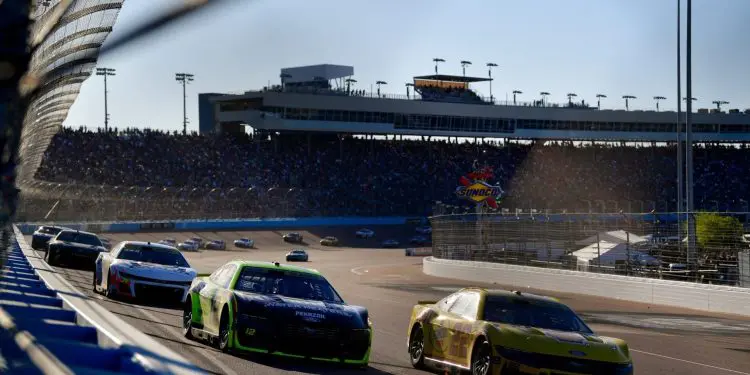In a bold move to modernize the sport and refine its highly debated playoff format, NASCAR is leaning heavily on Artificial Intelligence (AI). From optimizing race strategies to enhancing pit stop efficiency, AI’s role in the stock car world is expanding rapidly. However, this technological shift has sparked division among fans and raised questions about whether NASCAR is preserving its essence or losing its way in the pursuit of relevance.
The Playoff Conundrum: Can AI Solve the ‘Win and In’ Dilemma?
NASCAR’s elimination-style playoff format, introduced in 2014, was designed to inject excitement into the sport, but it has often come under fire. The controversy reached a boiling point in 2024 when Joey Logano clinched his third championship despite an unremarkable regular season. Fans argued that the “win and in” system prioritized luck over consistent performance, especially as Kyle Larson, with six race wins, failed to make the Championship 4.
Enter AI. NASCAR’s Chief Operating Officer Steve O’Donnell revealed the sport’s plan to leverage AI to analyze its playoff format and explore tweaks to improve competitiveness. According to O’Donnell:
“When we created even the stages or playoff format (years ago), you did that with the best data you had and best minds you had, but now being able to plug in and work with AI in terms of, ‘OK, if you tweak the playoffs this way, what should we be watching out for?’”
The goal is to ensure fairness, balance excitement, and better align fan expectations with the competitive realities of the sport.
Fan Pushback: Is NASCAR Ignoring Its Base?
For many fans, NASCAR is a tradition-rich sport that thrives on its connection to grassroots racing. The idea of relying on AI, rather than engaging with the NASCAR community for feedback, has drawn criticism. Fans argue that decisions made by algorithms could alienate the sport’s loyal base, who value human intuition and the unpredictability of racing over cold, calculated data.
One fan remarked on social media:
“AI is great for pit stops, but why can’t NASCAR just listen to its fans instead of letting computers decide the future of the sport?”
AI in Action: Richard Childress Racing’s Pit Stop Revolution
While the playoff debate rages, AI has already proven its value in other aspects of the sport. Richard Childress Racing (RCR), in collaboration with Lenovo, has revolutionized pit stop precision using AI to monitor refueling. By analyzing video at 30 frames per second, AI accurately measures the time a fuel can is plugged into a car, down to 0.03 seconds. This eliminates guesswork, ensuring cars are neither under-fueled nor burdened with excess weight.
Lenovo’s AI data scientist, Sachin Wani, explained:
“An AI engine looks at each frame and classifies whether the fuel can is plugged or unplugged. The information is accurate to within about 0.03 seconds.”
RCR’s technical director, Eric Kominek, praised the technology, stating that it gives teams greater confidence in their strategy, potentially shaving off precious seconds that can decide races.
Balancing Tradition and Progress
NASCAR’s embrace of AI is emblematic of the broader challenges facing modern sports: balancing tradition with innovation. While AI can enhance efficiency and competitiveness, critics fear it may strip away some of the human element that makes the sport relatable. However, as O’Donnell pointed out, the sport’s evolution is necessary to stay relevant:
“AI can play a really big role in ensuring the sport evolves while maintaining the essence of what makes it great.”
The Road Ahead: AI as a Game-Changer?
AI has already cemented its place in NASCAR’s pits and planning rooms, with its potential only beginning to unfold. From improving the controversial playoff format to redefining pit stop strategy, artificial intelligence could be the key to NASCAR’s next evolution. Yet, the sport must tread carefully to ensure it doesn’t alienate the fans who have long fueled its growth.
So, is AI the future of NASCAR or a step too far from its roots? For now, one thing is certain: NASCAR’s willingness to innovate, while contentious, reflects its commitment to staying competitive in a fast-changing sports landscape. Whether fans embrace this shift or resist it, AI’s role in shaping the future of NASCAR is undeniable.







